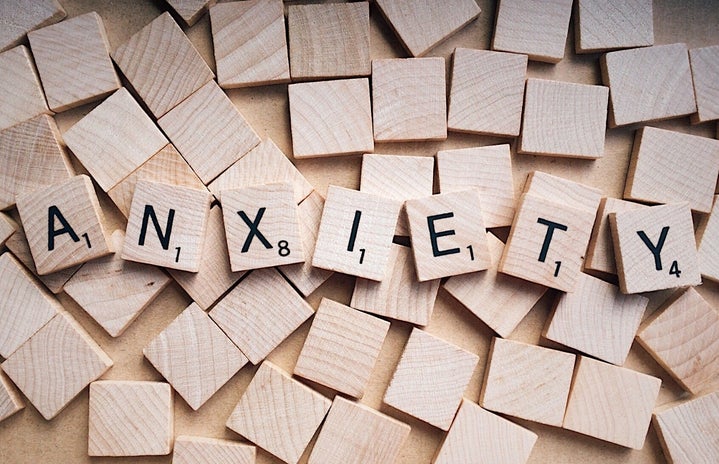In the digital corridors of our minds, where memes and TikToks reign supreme, the intricacies of forming bonds with others often unfold. Anxiety creeps in like that ominous notification bubble, casting doubt on every text sent and snap received. Trust, as fleeting as a disappearing Instagram story, feels like a distant dream, obscured by the ghosts of past betrayals and shady DMs.
Opening up in the age of Gen Z, where curated online personas often overshadow authentic selves, can feel like navigating a maze of filters and emojis. Trust issues, deeply rooted in past betrayals and the illusion of perfection perpetuated by social media, create barriers to vulnerability. Each potential disclosure feels like a risky swipe on a dating app, with the fear of rejection lurking in the shadows of every conversation thread. In a world where oversharing is as common as a viral TikTok dance, the act of revealing one’s true thoughts and emotions becomes a high-stakes game of authenticity. Trusting someone with the unfiltered version of oneself feels like exposing vulnerabilities to the scrutiny of a judgmental algorithm, where likes and comments serve as validation—or rejection—of one’s worthiness.
Anxiety can heighten the fear of rejection or abandonment, leading individuals to perceive social interactions as potential threats to their self-esteem and well-being.
Yet, amidst the noise of filtered photos and perfectly crafted personas, there exists a longing—a yearning for connection that transcends the superficial. It’s in the moments of vulnerability when masks are momentarily set aside, that genuine connections have the potential to flourish. But breaking through the barriers of trust and anxiety requires courage—the willingness to peel back the layers of digital armor and reveal the imperfect, authentic self-hidden beneath. And it’s within this act of vulnerability that true connection, in all its messy, unfiltered glory, can be found.
Friendship anxiety is worries about your platonic relationships. This type of anxiety can manifest in different ways, such as second-guessing whether your friends like you; wondering if your friends are angry at you; or even fretting over whether you have “enough” friends and what that says about you as a person. These anxious thoughts can lead you to take actions like constantly going over scenarios with your friends in your head, seeking reassurance (like asking “Are you mad at me right now?”), or avoiding being with your friends to lessen the triggers. Anxiety can heighten the fear of rejection or abandonment, leading individuals to perceive social interactions as potential threats to their self-esteem and well-being. This fear may stem from past experiences of rejection or negative interactions, causing them to anticipate similar outcomes in future relationships. Consequently, they may hesitate to initiate new friendships or invest fully in existing ones to avoid potential pain.
Overthinking, a hallmark of anxiety, plagues our minds with relentless analysis of every interaction, dissecting conversations and behaviors for hidden meanings or potential threats.
Anxiety, fueled by the constant stream of notifications and the pressure to keep up with the ever-changing trends, can turn even the simplest of interactions into a battlefield of worst-case scenarios. Navigating friendships and relationships can be an uphill battle for individuals grappling with anxiety and trust issues, where overthinking and catastrophizing often become their constant companions. Overthinking, a hallmark of anxiety, plagues their minds with relentless analysis of every interaction, dissecting conversations and behaviors for hidden meanings or potential threats. This perpetual rumination can distort reality, heightening stress levels and eroding confidence in their connections. Furthermore, catastrophizing exacerbates their fears, as they envision the worst-case scenarios in any situation, particularly when it comes to the intentions of others. Fear of betrayal, rejection, or abandonment looms large, driving them to jump to conclusions that validate their deepest anxieties.
Often after experiencing the loss of a loved one, forming new relationships can be a deeply challenging and emotionally complex process. Grief has a profound impact on every aspect of one’s life, including their ability to connect with others. The void left by the departed loved one can feel insurmountable, casting a shadow over the prospect of forming new bonds. Additionally, the fear of experiencing similar loss again can make individuals hesitant to open themselves up to new relationships. Emotionally, they may still be processing their grief, grappling with feelings of sadness, anger, and loneliness, which can hinder their capacity to engage fully with others.
The void left by the departed loved one can feel insurmountable, casting a shadow over the prospect of forming new bonds.
In a digital age where memories are stored in the cloud, Gen Zers may find themselves scrolling through old photos and messages of their loved ones. While these memories can provide comfort, they can also trigger feelings of sadness and longing, making it harder to focus on building new connections. The process of forming new relationships may evoke feelings of guilt or disloyalty towards the deceased loved one. Individuals may find themselves comparing potential new connections to the relationship they shared with the person who has passed, leading to feelings of guilt or betrayal. These internal conflicts can create barriers to forming new relationships and may contribute to a sense of emotional paralysis.
If you’re navigating friendships and relationships while dealing with anxiety and trust issues, remember that you’re not alone.
Here are some tips that can help you:
- It’s Okay to Struggle: Just like in a tough level of your favorite game, it’s normal to face challenges. Dealing with anxiety and trust issues is tough, but remember, every level has its strategy guide—and seeking help is like finding cheat codes to make things easier.
- Talk About It: In the same way you’d chat with your squad about a game’s toughest boss, open up to your friends about how you’re feeling. Real talk strengthens bonds and helps your crew understand what you’re going through.
- Set Your Boundaries: Think of your boundaries like rules in a multiplayer game—necessary for a fair and enjoyable experience. Let your friends know what you’re comfortable with and stick to it. It’s all about maintaining balance and keeping the game fun for everyone.
- Stay Present: Just like you’d focus on the game screen to avoid traps, practice staying present in the moment to manage anxiety. Whether it’s using mindfulness apps or taking a break to breathe, staying in the now helps keep your head in the game.
- Start Small: Building trust is like leveling up your character—it takes time and effort. Start by making small moves, like joining a club or chatting with new people online. Every interaction is a step towards boosting your social stats.
- Quality Over Quantity: In gaming, it’s better to have a few strong abilities than a bunch of weak ones. Similarly, focus on nurturing a few close friendships rather than spreading yourself too thin. Quality connections bring more joy and support in the long run.
- Celebrate Wins: Just like you’d celebrate beating a tough boss, celebrate your progress in building trust and forming relationships. Every step forward, no matter how small, deserves a victory dance.
Navigating relationships while dealing with anxiety and trust issues is like leveling up in a game—it’s a journey with its fair share of challenges. But hey, you’ve got this! Remember to be kind to yourself, reach out for help when you need it, and keep those lines of communication open. Setting boundaries and focusing on quality connections over quantity is key. And don’t forget to prioritize self-care and celebrate every little victory along the way. You’re on a quest to build fulfilling relationships, and with determination and support, you’re bound to succeed.
You’ve been through too many wars to doubt your strength, keep going, friend!
Visit HerCampus at MUJ for more relatable reads!


